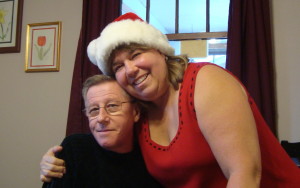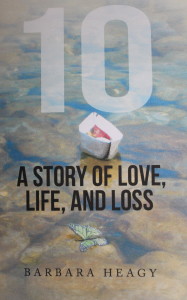Gratitude – a deep, heartfelt thank you and appreciation for what you have – can transform your life. It can change despair into hope, fear into love, and sorrow into joy. With gratitude, we realize that it’s less about your life circumstance and more about your attitude to it. Focusing on what you do have rather than what you don’t have, or what you can do, rather than what you can’t do, is the simple secret. It’s a matter of free choice. You decide. No matter how difficult or taxing your situation is, there is always something to be thankful for. And it’s usually the simple, everyday things that mean the most – the roof over your head, the supper before you, the sunshine, the raindrops, the smile of your best friend, or the laughter of your child.
Gratitude, practised daily, brings an unexpected life change. Try it. Close your eyes and focus on the benefits, the good you have in your life. It doesn’t have to be outstanding or unique to be appreciated. It’s often the things we take for granted. Do you have your eyesight? There are those who don’t. Can you breathe freely without assistance or drugs? There are those who can’t. Do you have a home, food, family, or friends? Freedom of speech and movement are basic rights for us in Canada. There are those who are denied these simple human needs or comforts and yet, even they can find something to be thankful for. Perhaps it is their health, their families, or the simple gifts that are there for all of us – clean air to breathe, water to drink, sunshine to warm our bodies and spirits.
Focus on what you have today. Don’t let worries about the future affect your thoughts. Choose what you are thankful for and then say it out loud, or write it down in a daily journal or on slips of paper for a gratitude jar. If you do this every day, you will soon have a host of things. Doing this every day begins to change your world view. Instead of negative thoughts, you become focused on positive thoughts. You begin to feel good about yourself and your life. You begin to look for the benefits of every situation rather than the trouble it brings you. You begin to feel good about others and look to their strengths rather than their weaknesses. You choose daily activities that build you up, give you enjoyment, and add to your life, rather than take it away. This is something we all can do. But we have to practise it every day. Let feeling good about yourself and your life become a habit.
I have a friend who was diagnosed with Parkinson’s Disease. At first, all he could think about was the negative effect it would have on his life as he envisioned losing more and more of his taken-for-granted strengths and abilities. He began to fear the future. Bit by bit, he began to realize that he still has many capabilities and circumstances. He owns his own home, his family live close by and want to help in any way they can. He has begun to write his life story. He bought himself an adult-sized three wheel bike. He began to take dance classes. He joined support groups to meet with others who were also facing this life-debilitating disease. He still has much in his life. The last time I spoke to him I was impressed with his calm, inner acceptance of his disease and the enjoyment he has in his everyday life.
A family member has been told his cancer is at a palliative stage and that no more can be done for him to regain his health. He has accepted that, withdrawn from all his drugs except those that relieve difficult pain, and has made the choice to begin to live, rather than just curl up and die. He has been honest and up-front with his family and adult children and still partakes in family activities, weddings and other celebrations while he can. His family have gathered together in love, letting their father know how much he truly means to them. Too often we hear these words of praise at our loved one’s funeral, after they are gone. The children assist their father in any way they can, using their own strengths to help him begin to close his life. This involves selling his cars, reviewing his paperwork, cancelling his subscriptions and memberships, and delivering fresh-made meals on regular visits. He still has much to be thankful for. He still laughs everyday, his loud boisterous one-of-a-kind laugh that is his unique signature sign.
Start practising gratitude in your daily routine. You will be happier. It will enhance your life. It won’t have the power to remove negative conditions and experiences from your life but it does have the power to lift you up and give your life meaning and purpose, in spite of those difficult circumstances. Why not start today? What are you grateful for?


